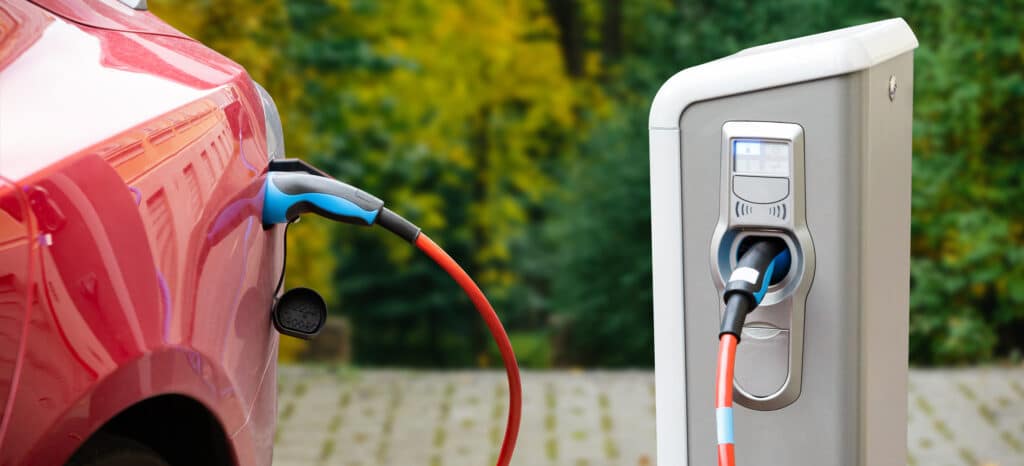In today’s fast-paced world, electric vehicles (EVs) have become a popular choice for eco-conscious consumers. They offer a sustainable and environmentally friendly alternative to traditional gasoline-powered cars. As the demand for EVs continues to grow, so does the need for reliable and accessible electric car charging infrastructure. If you’re considering making the switch to an electric vehicle, you might be wondering about the cost to install an electric car charger at your home. In this article, we’ll delve into the details and factors that influence the cost of installing an electric car charger.
Understanding the Cost To Install An Electric Car Charger
The cost to install an electric car charger can vary significantly depending on several key factors. Let’s break down these factors and explore how they impact the overall cost.
Read too:
- Type of Charger
The first factor that affects the cost of installation is the type of electric car charger you choose. There are several options available, including Level 1, Level 2, and DC fast chargers. Level 1 chargers are the most basic and are usually the least expensive to install. They use a standard 120-volt outlet and are best suited for overnight charging. Level 2 chargers are more powerful, using a 240-volt outlet and are suitable for both residential and commercial use. DC fast chargers are the most expensive to install but offer incredibly fast charging times, making them ideal for public charging stations.
- Location of Installation
The location where you intend to install the electric car charger also plays a crucial role in determining the cost. Installing a charger in your garage or driveway is typically less expensive than installing it further away from your home. The distance between your electrical panel and the charger’s location can affect the cost, as longer cable runs and trenching may be required.
- Electrical Panel Capacity
The electrical panel in your home must have sufficient capacity to support the charger’s power requirements. Upgrading your electrical panel to accommodate the charger can significantly add to the overall cost. It’s essential to have a qualified electrician assess your panel’s capacity to avoid any unexpected expenses.
- Permitting and Inspection Costs
Depending on your location, you may be required to obtain permits for the charger installation. Permit fees and inspection costs can vary from one jurisdiction to another, so it’s essential to research the requirements in your area and budget for these expenses.
- Labor Costs
The cost of labor for the installation can vary based on your location and the complexity of the job. It’s advisable to obtain multiple quotes from certified electricians to ensure you get a competitive price.
- Additional Features and Accessories
If you want additional features, such as Wi-Fi connectivity, a dedicated EV charger circuit, or a wall-mounted unit, these can add to the total cost. While these features enhance convenience, they may not be necessary for everyone.
Calculating the Total Cost
To estimate the cost to install an electric car charger for your specific situation, consider the following steps:
- Determine the type of charger you want and its associated installation costs.
- Assess the location where you plan to install the charger and account for any required electrical panel upgrades.
- Research permitting and inspection fees in your area.
- Obtain quotes from licensed electricians for labor costs.
- Add any desired additional features or accessories to the estimate.
Once you have all these components, you can calculate the total cost to install an electric car charger that fits your needs.
Read too:
The Benefits of Installing an Electric Car Charger
While the cost to install an electric car charger can be a significant investment, it’s essential to consider the long-term benefits. Here are a few reasons why it’s worth making the switch to electric vehicle ownership:
- Cost Savings: EVs are more energy-efficient and cost less to operate than traditional gas-powered vehicles. Over time, the savings on fuel and maintenance can offset the installation cost of the charger.
- Environmental Impact: EVs produce zero tailpipe emissions, reducing your carbon footprint and contributing to a cleaner environment.
- Convenience: Charging your EV at home means you wake up to a full battery every morning, eliminating the need for frequent trips to the gas station.
- Government Incentives: Many governments offer incentives, tax credits, and rebates to encourage electric vehicle adoption. These incentives can help offset the cost of charger installation.
In conclusion, the cost to install an electric car charger varies based on several factors, including the type of charger, location, electrical panel capacity, permitting and inspection costs, labor expenses, and additional features. While the upfront cost may seem significant, the long-term benefits of electric vehicle ownership and the environmental impact make it a worthwhile investment.
If you’re considering installing an electric car charger, be sure to research your options, obtain multiple quotes, and explore available incentives. With the right approach, you can make the transition to electric vehicles while keeping the cost to install an electric car charger manageable.
